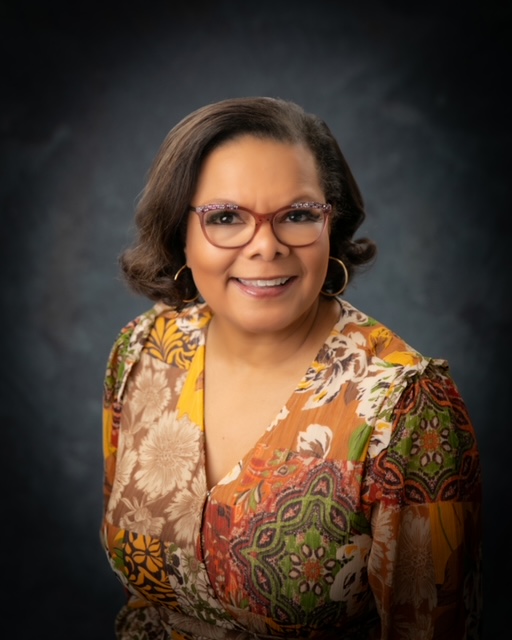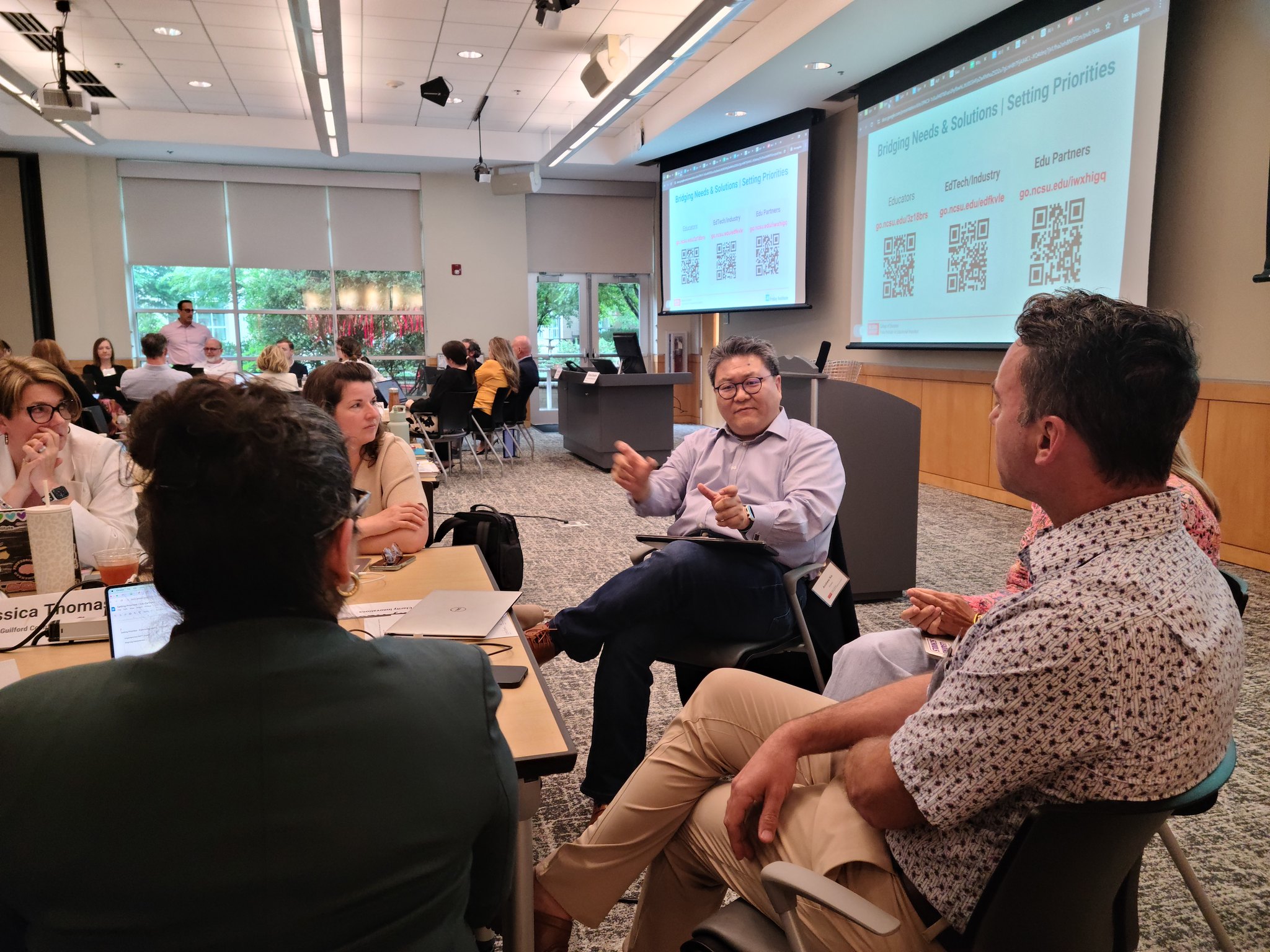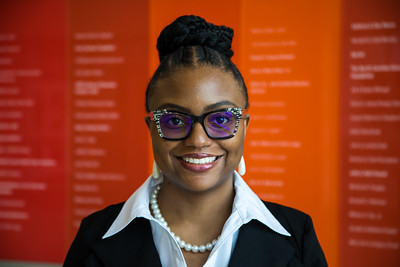LASER Institute Builds Community of Scholars for Lifelong Connections, Future Collaboration
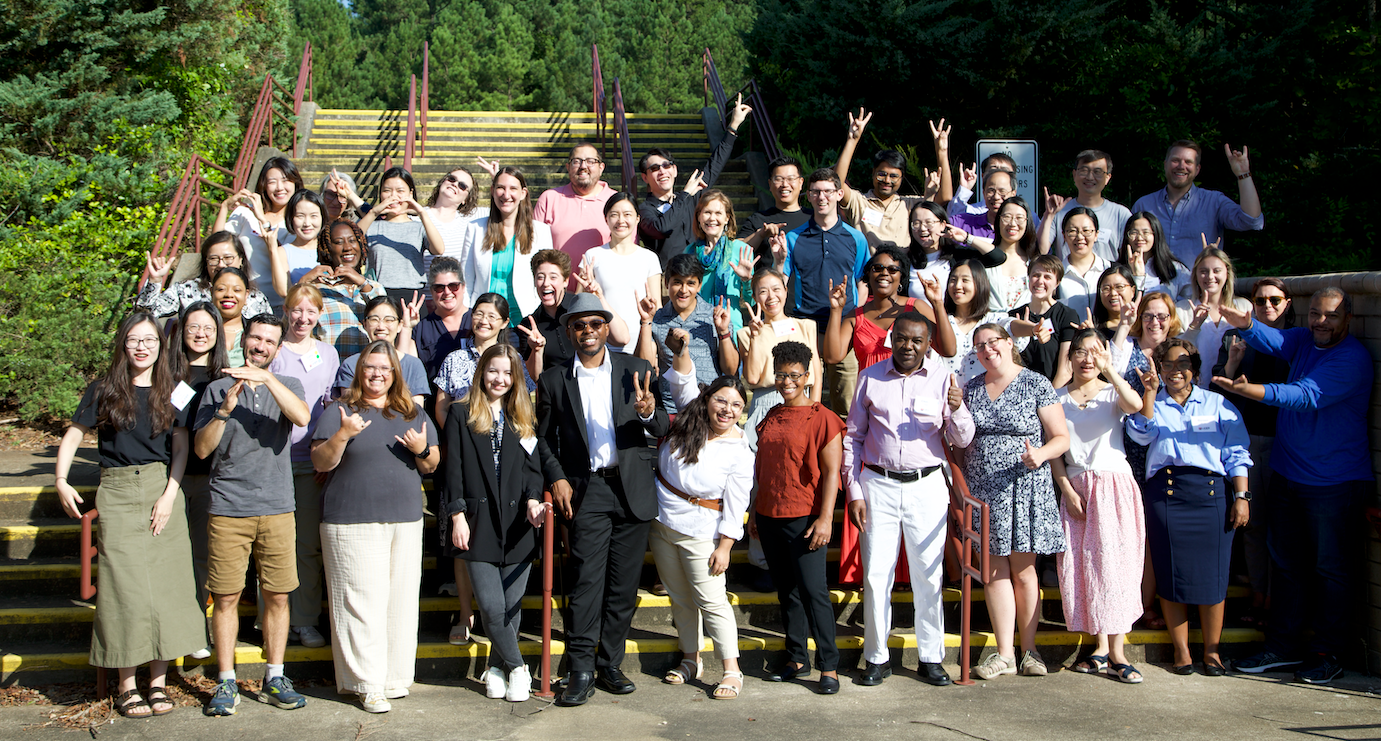
During a humid July evening over melting ice cream cones at the NC State Howling Cow Creamery, Korah Wiley and Praveen Meduri connected over their work in learning analytics, celebrated Meduri’s recent promotion, discussed possible grant collaborations and bonded over what brought them to their work. Wiley, a learning scientist for Digital Promise, and Meduri, an associate professor at California State University, Sacramento, were at a social event for the LASER Institute’s Summer Workshop, an intensive five-day program of learning labs, research planning sessions and guest speakers. Their connection is just one of many made through the LASER Institute, a professional development program for early- and mid-career researchers, which is in its last year of a three-year, $993,150 Building Capacity in STEM Education Research (BCSER) National Science Foundation (NSF) grant that has served over 130 scholars.
Beyond the many positive effects that have come out of this institute, from helping scholars to seek and secure grant funding to facilitating collaboration on journal articles, LASER Institute scholars have gained connections that have significantly impacted their professional lives. Modeling the collaborative spirit the project aims to inspire, the LASER Institute was built from the collective expertise and inter-institutional efforts of Shaun Kellogg, Shiyan Jiang and Jeanne McClure from NC State University; Rob Moore from the University of Florida and Josh Rosenberg from the University of Tennessee, Knoxville.
“One of our goals with the LASER Institute was to create a vibrant community of scholars that would be able to meet at the Summer Institute and then go back to their local areas and make impactful research,” said Moore, assistant professor of educational technology at the University of Florida College of Education and co-principal investigator for the LASER Institute. “We hit our stride this year with finding the right blend between community building and curriculum. Being able to invite past scholars back as teaching assistants and guest speakers helped connect the past with the present and our community building and curriculum activities have this year’s cohort looking towards the future for collaborations and research efforts.”
The LASER Institute was established in 2021 with the objective of preparing researchers with the knowledge, skills and resources necessary for more advanced study of learning analytics (LA) and for collaborating with researchers and practitioners from different backgrounds, especially those from advanced data analytics. The first cohort was facilitated completely online, including the summer workshop, because of the COVID-19 pandemic. Although it was a bit harder to network, scholars were still able to learn more about LA with the option to focus on specific areas of interest in learning labs, including text mining, machine learning and social network analysis.
“The biggest difference between my cohort and the third cohort is probably human interaction,” said Nikki Lobczowski, an assistant professor in the learning sciences program at McGill University who was part of the 2021 cohort. “I think in mine [because it was fully online because of COVID], it was a little bit harder to network. I know we had the affinity groups and we had scheduled time, but not being able to sit down and kind of brainstorm was definitely a drawback of the virtual, but again, at that time, any possible virtual interaction was more than what you could hope for. Seeing how that’s changed over the years and how strong it is now with the community building activities, with just the open time and the way you can sit in class and talk about your different projects and get ideas off of that, I think is really powerful to see that in others.”
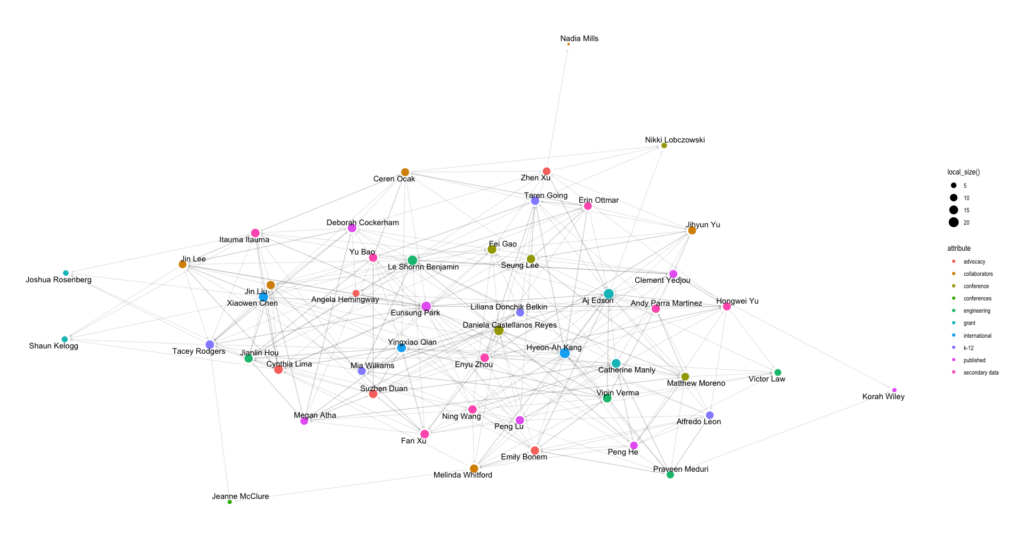
During her cohort, Lobzcowski learned how to use and apply text mining to thousands of data points she had in an effort to figure out how to automate the process of collecting data.
“For me, it kind of changed my identity,” said Lobzcowski. “I felt kind of before, ‘I don’t do learning analytics,’ and I couldn’t participate in these conversations and think that way. So now, it’s kind of helped me identify more as a scholar in that area, which is the area I wanted to go in. So, I feel like instead of just being stuck in one place, it’s kind of helped me move forward with the field.”
For this year’s cohort, Lobzcowski was invited back as a teaching assistant (TA) for the text mining lab to support scholars, answer questions and provide personal data examples. Through this experience, she says she’s gained the confidence to teach her own class and conduct her own lab with students.
The Rise of SHARK Goals
Susan Hibbard, a 2022 scholar, has built several connections in the last year since her time at the summer workshop. She connected former colleague Megan Atha, a 2023 scholar, to the program knowing it would be a perfect fit for her. As senior director for learning science and psychometrics at Blueprint Test Preparation and consulting assistant professor at the Duke School of Medicine, Hibbard has frequently referenced a colleague’s white paper on learning activities to help increase scores and learn more on tests. She is also collaborating on a book chapter with LASER Institute Principal Investigator Kellogg and program team member McClure and uses what she learned in her machine learning labs frequently. This year, Hibbard was a guest speaker on one of the scholar panels during the summer workshop.
“Attending the Institute has really transformed what I focus on in my day-to-day and, as I think for the future, of what I do in my work and the different opportunities for things in the future,” said Hibbard.

Last year, the LASER Institute adopted SHARK Goals, their own version of SMART goals, for their yearlong program. Scholars identified a Specific professional development goal and How they would achieve it, ensured it was Attainable and Relevant, and made a plan for Keeping it on track. Hibbard’s SHARK Goal was to identify in her organization’s systems where data are to inform different pathways learners are taking on their STEM journey. She wanted to use machine learning to see what kind of things cluster together and the most effective things to do. In the last year, she has used what she’s learned in the LASER Institute’s machine learning labs to assess the difficulty of learning on the test preparation resources her organization offers for the Medical College Admission Test (MCAT) and the Law School Admission Test (LSAT). What usually takes about two years of pilot testing for a high-stakes test could be sped up with the help of machine learning when adding new timely questions into these tests, such as the impact of COVID.
Melinda Whitford, also a 2022 scholar, is still learning a year after creating her SHARK Goal. Whitford’s SHARK Goal was to use social network analysis to look at co-curricular enrollment for first-generation college students in a peer mentoring program. So far, she has observed that the connections that these students have with their mentors has remained strong for the last three years of the program. This year, she’s the TA for the Foundations learning labs.
“I was honored to be asked back,” said Whitford, a research analyst and adjunct faculty in the Graduate School of Education at the University at Buffalo, adjunct faculty at Niagara University, and a research mentor for the National Center for Educational Statistics Data Institute. “It’s really, for me, about learning and learning new methodologies and trying to see how far I can push myself.”
Equity in Learning Analytics

Tacey Rodgers, a 2023 scholar, has been thankful for the opportunities she’s been offered to meet both a diverse group of scholars as well as those who are like-minded, who she can connect with on both a professional and personal level.
“The fact that the criteria for application to this program is that you’re within 15 years of your research work, we are all similar in our experience and timeframe,” said Rodgers, the director of assessment, research, and evaluation at the Solano County Office of Education. “Everyone is at that same experience level, so the camaraderie is even greater because we have some experience and we’re trying to go further, so the bonding is stronger in that regard because we’re at similar points in our paths.”
Equity is a large goal of the BCSER program, therefore the LASER Institute prioritized early- and mid-career scholars from underrepresented groups and faculty at minority-serving institutions. Rodgers found the discussions and learning to be very inclusive and welcoming.
“As a woman of color, diversity really matters to me,” said Rodgers. “Not only gender, but ethnicity, and not only ethnicity but experience. There’s colleagues here from across the globe. That matters. To know that all of us are working towards the same goal to support K-12 education, to know that our affinity groups included equity and inclusion—everything as a scholar, when I’m considering how I want to spend my time and what programs I want to connect to, the LASER Institute met every requirement that I had.”
The Next Phase
In the last year of their grant, the project team has seen the impact their program has had on a community of scholars. With a growing number of applicants over the years and more than 300 applications this year, the LASER Institute staff has seen a high demand for this type of training.
“It’s bittersweet when you do a three-year project because I think we just hit our stride with getting the right balance between scholars, expectations, community and curriculum,” said Kellogg, senior director at the Friday Institute for Educational Innovation and principal investigator for the LASER Institute. “Fortunately, NSF has seen the value of this incredible program and has funded the next iteration of the LASER Institute, which aims to extend our impact even further.”
Kellogg and his colleagues Jiang and Gemma Mojica from NC State and Ryan Baker from the University of Pennsylvania have been awarded an NSF grant that will help extend the LASER Institute’s reach into universities and research institutions across the country. The $1 million collaborative award will support an expansion of the LASER Institute in scale, scope and delivery format. The Institute on Broadening the Use of Learning Analytics in STEM Education Research will provide participating scholars with ongoing training and support in using cutting-edge techniques for their STEM education research. The project team will also develop easy-to-use and adaptable curriculum materials that participants will use to provide training for scholars and students at their home institutions. All curriculum materials will be published online so that education researchers and practitioners everywhere can benefit—not just those directly involved in the program.
- Categories:
